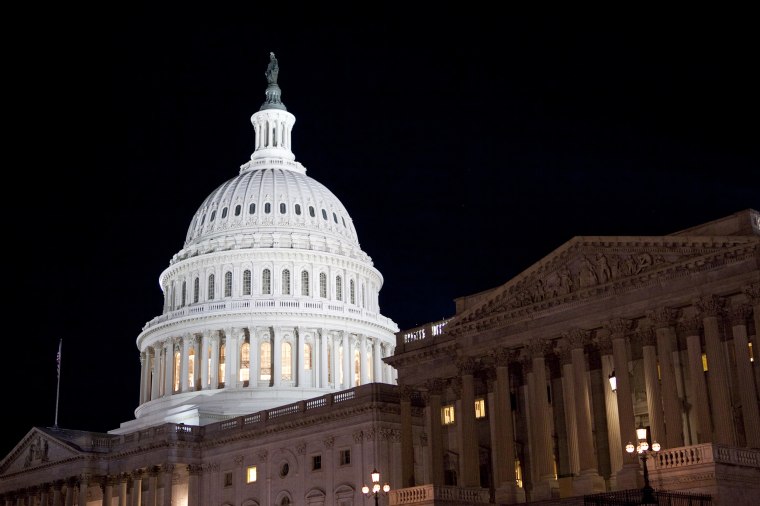The Democratic-controlled House approved a wide-ranging bipartisan defense policy bill Thursday despite strong opposition from a conservative wing of the Republican Party.
The House voted 316-113 in favor of the $768 billion defense measure after lawmakers spent hours debating hundreds of amendments. The bill, which guides Pentagon policy and would cover the fiscal year 2022, is about 5 percent more than the previous year’s bill. Sens. Jack Reed, D-R.I., chairman of the Armed Services Committee, and Jim Inhofe, R-Okla., the committee's ranking member, introduced the Senate's version of the bill Wednesday.
The bill, which is reauthorized annually, typically passes with broad bipartisan support. But a day before the bill’s passage, the House Freedom Caucus urged the Republican Party to oppose the measure because of an amendment that would allow the registration of women for the Selective Service System, which was approved with bipartisan support while the bill was in committee.
The House Republican Conference had signaled its support for the bill — known formally as the National Defense Authorization Act — in a memo Monday.
Rep. Alexandria Ocasio-Cortez, D-N.Y., was one of many lawmakers who introduced amendments during the debate on the House floor. Ocasio-Cortez’s amendment aimed to reduce the price tag of the bill by 10 percent. It failed.
Earlier Thursday, the House also approved a bill to provide funding for Israel's Iron Dome aerial defense system after it was removed from the broader spending bill. Members voted 420-9 after some progressive Democrats, including Ocasio-Cortez, raised objections to the $1 billion cost. Overall, eight Democrats and one Republican voted against the bill.

